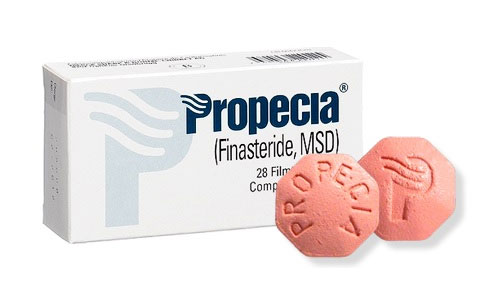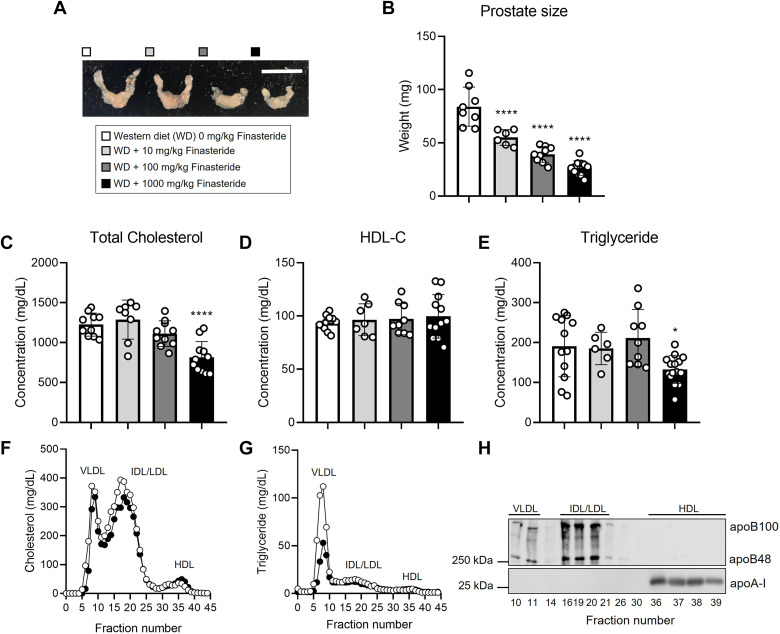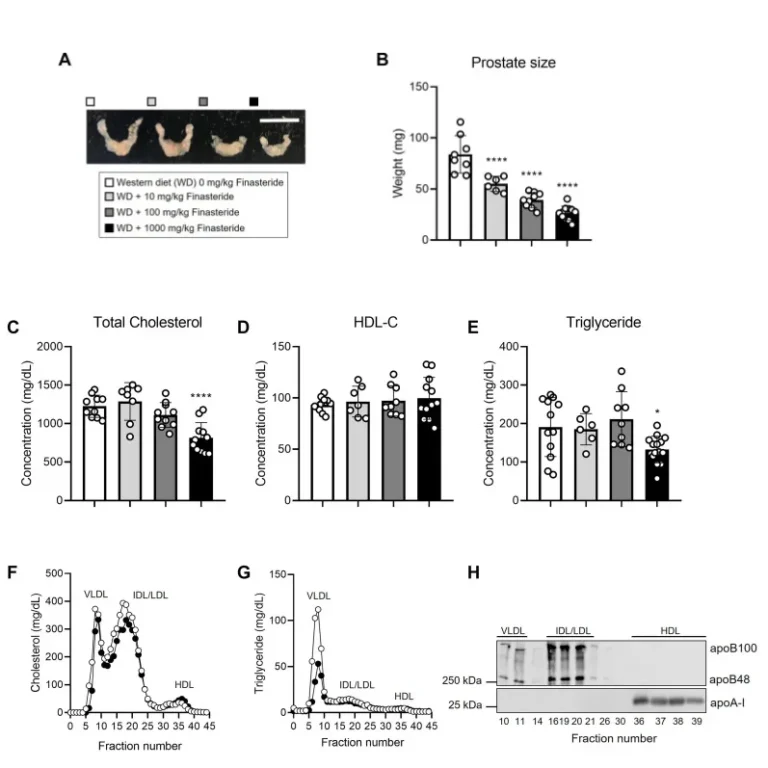Finasteride, marketed under the names Propecia or Proscar, has long been prescribed to address male pattern baldness and enlarged prostate. However, a recent study conducted at the University of Illinois Urbana-Champaign suggests that there may be some cardiovascular benefits of finasteride. Research shows that finasteride can reduce cholesterol levels, lowering the risk of cardiovascular disease.
WHAT IS FINASTERIDE?
Finasteride is a medication used to treat hair loss, particularly male pattern baldness, as well as benign prostatic hyperplasia (BPH). BPH is a condition characterized by an enlarged prostate gland. Finasteride belongs to a class of drugs known as 5-alpha-reductase inhibitors. Its primary mechanism of action involves blocking the enzyme 5-alpha-reductase, which converts testosterone into dihydrotestosterone (DHT). By inhibiting DHT production, finasteride helps to slow down hair loss and promote hair regrowth in individuals with androgenetic alopecia. While also reducing prostate gland size and relieving symptoms associated with BPH. Finasteride is typically available in oral tablet form. It is often prescribed at a dosage of 1 milligram daily for hair loss and 5 milligrams daily for BPH. It is important for individuals considering finasteride to consult with a healthcare provider to discuss its potential benefits and risks.

HOW FINASTERIDE TREATS HAIR LOSS
Finasteride operates through a multifaceted mechanism targeting the root cause of male pattern baldness, also known as androgenetic alopecia. Male pattern baldness is predominantly driven by the hormone dihydrotestosterone (DHT), which plays a central role in shrinking hair follicles. This process shortens the hair growth phase, and eventually leads to hair thinning and loss. Finasteride functions by inhibiting the activity of the enzyme 5-alpha-reductase, responsible for converting testosterone into DHT within the body. By blocking this enzyme, finasteride effectively reduces DHT levels in the scalp. Thereby interrupting the destructive cycle that leads to hair follicle miniaturization and eventual hair loss.

One of the primary effects of finasteride is to prolong the anagen, or growth, phase of the hair follicle cycle. With reduced levels of DHT, hair follicles can remain in the active growth phase for longer periods, resulting in thicker, healthier hair strands. Additionally, finasteride may also stimulate the proliferation of hair follicle cells and promote the development of new, stronger hair shafts. Over time, this leads to increased hair density, improved scalp coverage, and a noticeable reduction in hair loss.
Clinical studies have consistently demonstrated the efficacy of finasteride in treating male pattern baldness. In randomized controlled trials, men using finasteride showed significant improvements in hair growth compared to those receiving a placebo. Moreover, long-term observational studies have revealed sustained benefits of finasteride therapy. Many individuals experienced continued hair regrowth and maintenance of hair density over several years of treatment. Finasteride is typically administered orally, with a recommended dosage of 1 milligram per day. Overall, finasteride remains a cornerstone in the management of male pattern baldness. It offers effective and reliable results for many individuals seeking to address hair loss concerns.
FINASTERIDE LEADING TO DECREASED CHOLESTEROL
Emerging research suggests that finasteride may possess unexpected benefits beyond its primary indications. A study conducted at the University of Illinois Urbana-Champaign found intriguing associations between finasteride use and reduced cholesterol levels, potentially leading to a decreased risk of cardiovascular disease. Published in the Journal of Lipid Research, the study analyzed data from the National Health and Nutrition Examination Survey (NHANES) between 2009 and 2016, revealing significant correlations between finasteride usage and lower cholesterol levels among male participants. Moreover, experiments conducted in mice administered high doses of finasteride demonstrated reductions in total plasma cholesterol, delayed progression of atherosclerosis, and diminished liver inflammation, suggesting a potential cardioprotective effect of the medication.
While the precise mechanisms underlying finasteride’s impact on cholesterol levels remain to be fully understood, its primary mode of action provides a plausible explanation. Finasteride works by inhibiting the enzyme 5-alpha-reductase, thereby reducing the conversion of testosterone to dihydrotestosterone (DHT). Given the established link between androgens and cardiovascular health, particularly in the context of atherosclerosis, it is conceivable that finasteride’s modulation of androgen levels may contribute to its cholesterol-lowering effects. However, further research is warranted to explore the intricate interplay between finasteride, hormonal dynamics, and cardiovascular risk factors, offering new avenues for understanding and potentially leveraging the therapeutic benefits of this widely used medication.
STUDY FINDINGS
Published in the Journal of Lipid Research, the study uncovered significant correlations between finasteride usage and decreased cholesterol levels among male participants in the National Health and Nutrition Examination Survey from 2009 to 2016. Additionally, in experiments involving mice administered high doses of finasteride, researchers observed reductions in total plasma cholesterol, delayed progression of atherosclerosis, diminished liver inflammation, and associated benefits.
Lead study author Jaume Amengual, Assistant Professor in the Department of Food Science and Human Nutrition and the Division of Nutritional Sciences at the College of Agricultural, Consumer and Environmental Sciences (ACES) at U. of I., expressed surprise at the findings. Contrary to expectations, men using finasteride exhibited cholesterol levels averaging 30 points lower than non-users, shedding light on an unforeseen aspect of the medication’s effects.
Subsequent experiments conducted by doctoral student Donald Molina Chaves involved administering varying doses of finasteride to atherosclerotic male mice fed a high-fat, high-cholesterol diet. Results revealed lowered cholesterol levels in mice receiving high doses of finasteride, accompanied by reduced liver lipids and inflammatory markers.
While the observed effects were significant at doses exceeding human usage, Amengual emphasizes the importance of considering species differences in drug metabolism. Nonetheless, the findings suggest that finasteride may influence cholesterol levels in humans even at standard doses. This offers a promising avenue for further investigation.

FUTURE DIRECTIONS
Prompted by the unexpected connection between finasteride and cholesterol levels, Amengual delved deeper into the mechanisms underlying this phenomenon. Given the drug’s primary role in altering hormonal dynamics by blocking a protein involved in testosterone activation, Amengual’s interest in exploring its broader effects was piqued.
Moving forward, tracking cholesterol levels in finasteride patients or conducting clinical trials may elucidate this effect further. Of particular interest is exploring potential cardiovascular benefits in transgender individuals undergoing hormonal transitions. This is a group at higher risk of both hair loss and cardiovascular disease.
CONCLUSION
Despite the potential benefits, Amengual emphasizes the importance of consulting healthcare providers before commencing finasteride treatment, given its associated risks. Nonetheless, these findings open new doors for research into the broader implications of finasteride. This offers hope to a diverse range of individuals for the cardiovascular benefits of finasteride.
Read the full article from the Journal of Lipid Research, Finasteride Delays Atherosclerosis Progression in Mice and is Associated with a Reduction in Plasma Cholesterol in Men.
SHOP FOR HAIR LOSS TREATMENTS


